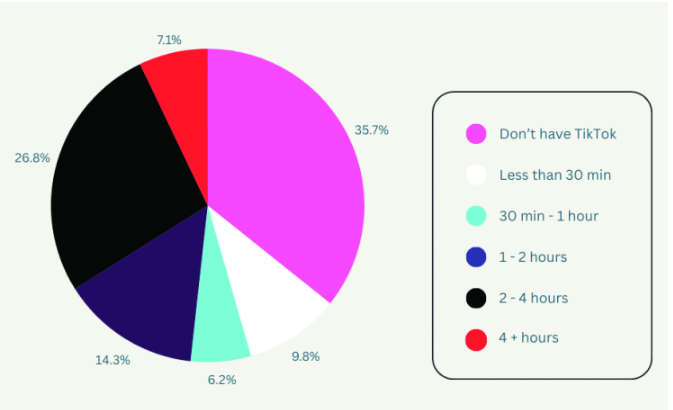On Jan. 17, 2025, the United States Supreme Court unanimously upheld the federal law banning TikTok across all US platforms.
The ban was put into effect Sunday, Jan. 19, when users all over the country were unable to access the app. However, after only about 12 hours, TikTok was back online, with the only change being that users could no longer download the app from the app store.
“[When I opened] TikTok on my phone, nothing worked,” Aarav Dubal (12) said. “The screen only showed a small white box with the new law and a segment on how Trump was working to bring it back.”
The reason for the ban was based on the risk of China using TikTok to spread propaganda. ByteDance, the app’s parent company, is based in China, where national security laws require all organizations to assist in intelligence gathering for the communist government according to Article 7 of the National Intelligence Law of the People’s Republic of China.
When given this information, some students felt as if the same could be said about all apps when it comes to data tracking.
“I think TikTok tracks our data, but so does every other platform,” Dubal said.
“There’s a lot of foreign based apps that pretty much do the same thing. I get that our government can get worried when it comes to our relationship with China, but it’s also worrisome that [the US government] can just ban an app that so many people use for more than just mindless scrolling,”
This ban impacts not only VHHS students, but teachers as well. Science teacher Neal Hausmann spoke about how TikTok was a platform he used for educational purposes.
“For me, it was a networking thing, where I made a lot of friends through that app. I met teachers that would ask me about all these cool new lab ideas and then we would network,” Hausmann said.
Additionally, Hausmann mentioned that several people in his life rely on TikTok to sustain their start-up companies.
“I have a friend who makes four or five grand off TikTok. Multiply that by all the other small businesses that are out there, I mean, you gotta keep that stuff open for people,” Hausmann said.
A survey of 113 students recorded mixed reactions to the ban; however, results showed that a majority of students who participated in the survey felt neutral about the recent events.
On average, 34 percent of participants placed themselves in the middle (3) out of the 1-5 Likert scale when asked to what extent they were upset when the ban was announced, the moment it was implemented, and the speculation of possible restoration.
Other opinions were more firm, some being in agreement with the Supreme Court’s decision.
Sai Soleti (12) stated how this action is the government’s way of “stepping in against an epidemic of screen addictions.”
“I know plenty of people who are so addicted to this app. They spend four, five, sometimes 10 hours a day scrolling through mindless videos,” Soleti said. “In my opinion, the ban has the potential to do a lot of good and put some people in check of how much time they’re wasting on foolish stuff.”

